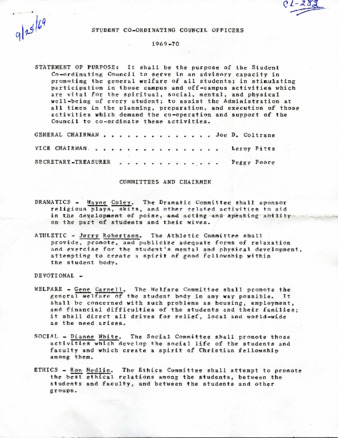Search Constraints
« Previous |
5,321 - 5,330 of 5,545
|
Next »
Search Results
Select an image to start the slideshow

SEBTS Chapel - Kurt Anders Richardson February 2, 1989
1 of 10

SEBTS Missionary Day Address - Caralie Brown January 31, 1989
2 of 10

SEBTS Chapel - Donna M. Forrester January 18, 1989
3 of 10

SEBTS Chapel - Leonard Farrar January 19, 1989
4 of 10

SEBTS Chapel - Lewis Addison Drummond January 24, 1989
5 of 10

SEBTS Convocation - Edwin Luther Copeland January 17, 1989
6 of 10

SEBTS Chapel - Samuel Eugene Balentine January 26, 1989
7 of 10

SEBTS Chapel - Julius Carroll Trotter, Jr. October 1, 1969
8 of 10

SEBTS Chapel - Raymond Bryan Brown September 19, 1969
9 of 10

SEBTS Chapel - Student Coordinating Council September 25, 1969
10 of 10